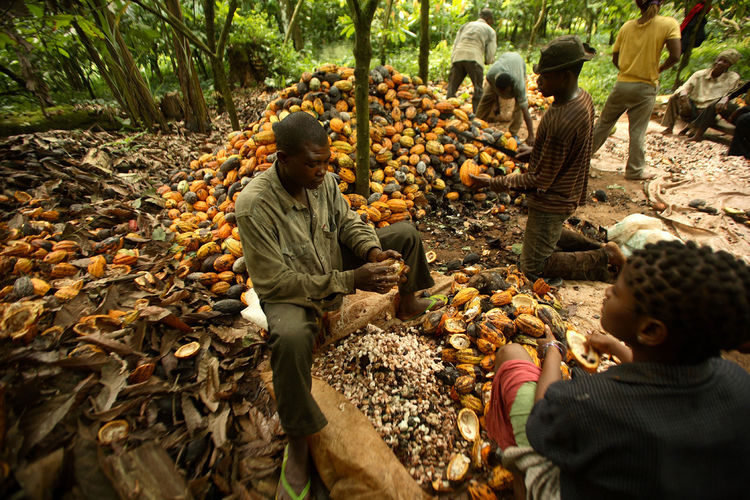- African Farmers Should Determine Cocoa Price
The Ooni of Ife, Oba Adeyeye Ogunwusi, said cocoa farmers in Africa should be allowed to determine the price of the produce in the international market.
The monarch, who made the call at the first Regional Cocoa Symposium held at the International Institute of Tropical Agriculture, Ibadan on Tuesday, said it was morally wrong for external bodies to determine what the price of a farm produce would be, bearing in mind the fact that Africa was producing 70 per cent of the global cocoa yield.
The Senior Programme Director for West African Programme, World Cocoa Foundation, Mr. Paul Macek, said the symposium was held to encourage farmers to improve on the production of cocoa.
The Ooni said, “If you produce something, you should be able to determine the price, but cocoa is not like that. And for a region producing about 70 per cent of the global consumption and yet you don’t have a say on the price.
“The price is being determined at the New York Stock Exchange and London Stock Exchange. I don’t think that is morally fair to the producers. I don’t think the principle of fairness and equity is in that at all.
“If they say cocoa price today is $2,000 per tonne because of market forces; that is what it’s going to be. If by tomorrow, they say it is $1,000; that is what it is going to be. What is important is for all the farmers to be considered in determining the price. This is beyond Nigeria now.
“All the cocoa producing countries in Africa should come together and work as one big and happy family to address this injustice and to the glory of God, this gathering is a global gathering and I have begun the process by putting it across to them.”
The three-day event had participants drawn from across the cocoa producing countries of the West and Central African regions as well as international stakeholders.
The Ooni of Ife, who was optimistic about the enormous financial and employment creation potential in cocoa production, said allowing the producing countries to determine the prices would go a long way in encouraging the youth to embrace cocoa cultivation.
The monarch added, “Look at it (from this way), if they buy cocoa for $2,000, for instance, they will use it to get more than $30,000 value; you can see how wide the margin of impact is. We need to correct the injustice so as to encourage our youths to embrace the farming and cultivation of cocoa
“Africans produce up to 70 per cent of the cocoa that is needed globally, yet the price is not determined by Africans but by Europe, where the crop is not produced. They should break this disparity between the cocoa farmers in Africa and those buying in Europe.
“So many farmers in Africa have not had the opportunity to taste chocolate, yet they work all their lives producing cocoa at its best. Stakeholders don’t have to wait until the farmers in tropical Africa producing cocoa team up to form a cartel and refuse to supply cocoa until they are being carried along in determining the price of cocoa.”

 Forex3 weeks ago
Forex3 weeks ago


 Naira2 weeks ago
Naira2 weeks ago
 Billionaire Watch2 weeks ago
Billionaire Watch2 weeks ago




 Naira2 weeks ago
Naira2 weeks ago




 Naira2 weeks ago
Naira2 weeks ago




 Naira4 weeks ago
Naira4 weeks ago


 Naira7 days ago
Naira7 days ago
 Banking Sector4 weeks ago
Banking Sector4 weeks ago






















